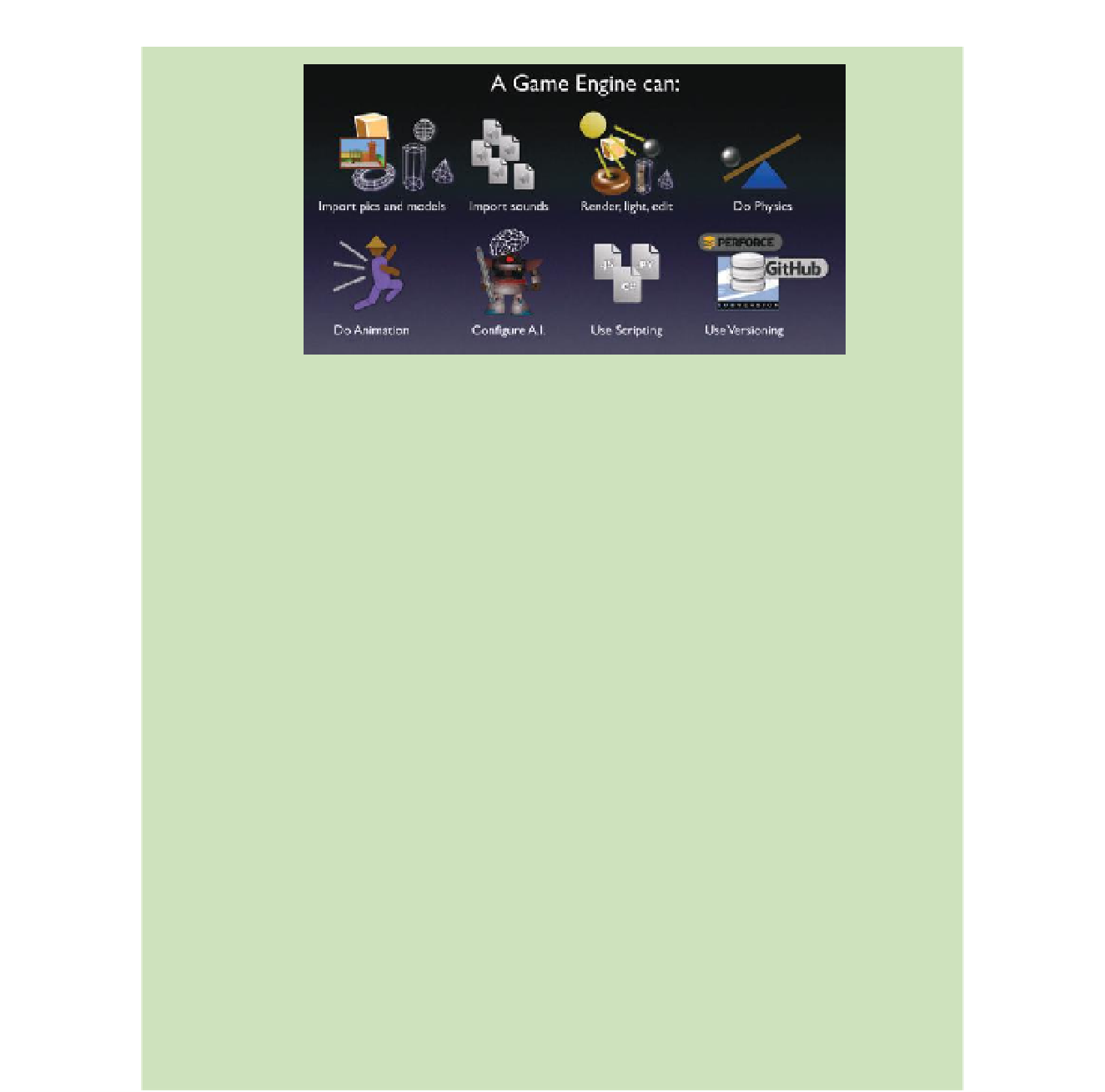Game Development Reference
In-Depth Information
how realistically an element or asset in the game will perform within the “real world” of the game
environment. This goes for complex things like particles in an explosion, as well as the rigidity of the
material on an object.
•
Animation of objects
. Related to the concept of physics is animation. This i eld covers the area of
objects moving under their own power, and not because of the laws of physics. Individual simple
model animation can be imported from other designing programs that can handle it, but the overall
interactions on a large scale of things like cars, other non-player characters, etc., is at least partially
determined by animation movements. A typical animation in a game is when doors open between
rooms due to a trigger action. The door's position is animated, and the animation starts when the
trigger is activated due to a collision event received from the physics system.
•
Artii cial Intelligence (AI)
. This broad category refers to the way in which objects in the game “think”
and react to stimuli provided by the player. Mostly it is a set of rules governing behavior and strategy
of the game's dif erent elements depending on what the player does in the game. These behaviors
can be very simple or very complex and interrelated to trigger points or goals achieved or unachieved.
A simple example might be if a player passes a certain number of trigger points, then the amount of
enemies will increase, or perhaps they will all move faster. Possibilities are many and AI is a vital part of
what makes the game interesting, especially when playing against the computer.
•
Scripting
. This ability is akin to the glue that holds everything together in a game. Scripts govern
the behavior of how objects will relate to one another based on certain conditions or criteria. This is
where a rule like “Player cannot enter area X unless they possess object Y” would be created as well as
the ability to override certain default settings within the application or to extend functionality with
plug-ins. Actions like having a player run into something that makes a sound is governed by a script.
Scripts are more often written in simplii ed structural forms like Javascript and its many variants,
Python, or Lua, making it much easier than coding rules and behavior in C, C# or C++ though most
well-known engines will support this kind of extensibility.
•
Asset control
. This means keeping track of all the items in a game, whether they are textures, 3D
models, sounds, surfaces, AI behaviors, animations, rules, etc. Anything in a game has the potential
to be reused at any time, so every element needs to be tracked, organized and categorized. Game
engines can do this to some extent but sometimes extra help is needed, so for that, dedicated
































